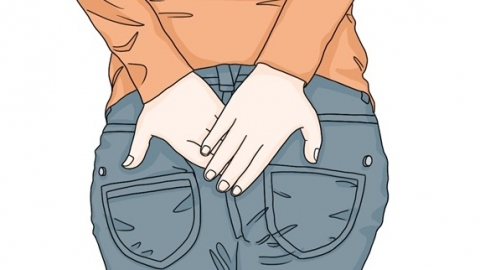肛裂出血What to do
Generally, anal fissure bleeding may be caused by constipation and hard stools, unhealthy lifestyle habits, proctitis, local anal infection, infectious enteritis, and other factors. The solution depends on the specific cause in order to achieve effective treatment. Prompt medical attention and following medical advice for treatment are necessary. Details are as follows:

1. Constipation and Hard Stools: Long-term constipation or hard stools can cause difficulty in passing bowel movements, as the stools become too hard. During defecation, excessive straining may tear the anal mucosa, leading to anal fissures and bleeding, often accompanied by anal pain. Adjust your diet by increasing fiber intake, such as eating more fruits, vegetables, and whole grains to maintain regular bowel movements.
2. Unhealthy Lifestyle Habits: Poor lifestyle habits may reduce immunity and affect the normal physiological function of the anus. These habits can also worsen constipation, increasing the risk of anal fissure bleeding, often accompanied by fatigue. Improve lifestyle habits, ensure adequate sleep, and avoid excessive fatigue and staying up late.
3. Anal and Rectal Inflammation: This condition refers to inflammatory diseases in the anal and rectal regions. Due to inflammatory irritation, ulcers may develop on the perianal skin, which can lead to anal fissures and bleeding, often accompanied by anal pain. Under a doctor's guidance, medications such as Musk Hemorrhoid Suppository, Mesalazine Suppository, and Sulfasalazine Suppository may be used for hemostasis and anti-inflammatory treatment.
4. Local Anal Infection: Local anal infection may lead to abscess formation, which can rupture and result in anal fissures. These infections are typically bacterial in origin and may enter the body through damaged skin or mucous membranes, triggering an inflammatory response that causes anal fissure bleeding, often accompanied by anal pain and swelling. Follow medical advice for treatment with medications such as Cefixime Capsules, Amoxicillin Capsules, or Erythromycin Ointment, which have anti-inflammatory and anti-infective properties.
5. Infectious Enteritis: This condition is an intestinal inflammatory response caused by viruses or bacteria. Toxins and inflammatory factors produced by pathogens may irritate the gastrointestinal mucosa. When the inflammation affects the anal canal, it may lead to anal fissure bleeding, often accompanied by abdominal pain. Under medical guidance, medications such as Norfloxacin Capsules, Montmorillonite Powder, and Changkang Tablets may be used for anti-inflammatory and pain-relieving effects.
It is important to maintain good anal hygiene and ensure regular bowel movements, avoiding excessive straining during defecation and unhealthy lifestyle habits to prevent anal fissure bleeding.




